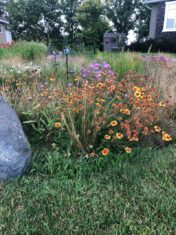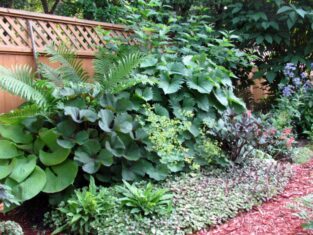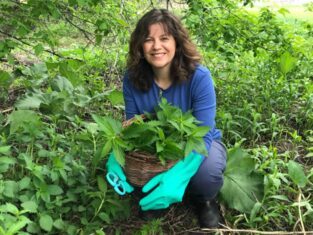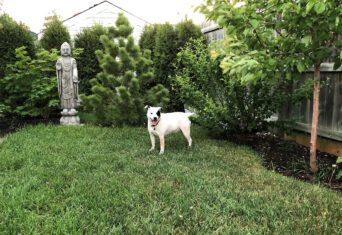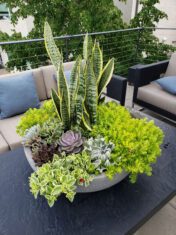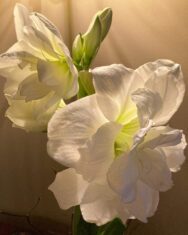
Seedy Saturday (or Sunday) gatherings are annual grassroots events where open-pollinated and heritage seeds are swapped and attendees can network with growers and experts and learn seed-saving techniques. These social events are increasing in popularity across Canada, gaining momentum in concert with the increase in hybrid and genetically modified seed being sold.
Typically organized by horticultural societies or community groups in spring and fall, and held in all manner of venues, including churches, school gyms and farmers’ markets, these non-profit consumer shows — sans fancy display gardens and floral competitions — are more Mother Earth than garden club; more stewardship than decor. These gatherings attract everyone from those who have a toddler or two in tow, hoping to establish roots for the next generation, to retirees. In addition to seed swaps, activities include workshops and presentations on a variety of subjects, such as worm composting, and the differences between cultivating plants for food and cultivating them for seed. Depending on the organizer, you may be able to buy commercial seeds, as well as garden-related art or accessories; inquire about landscaping services or learn how best to accommodate native bees. Door prizes, music, and games for kids—involving seeds or edibles (naturally)—may round out the day’s activities.
The first Seedy Saturday took place 25 years ago, after agronomist Sharon Rempel had difficulty finding heritage wheat varieties to plant at the living museum she was establishing at The Grist Mill and Gardens in Keremeos, B.C. As Rempel explains: “One morning I woke up and said to myself, ‘It’s good to bring everyone together in one room, to understand what was happening globally with seed and how that affects Canada.’”
The event was held at VanDusen Botanical Garden, in Vancouver, with more than 500 people in attendance, including scientists from The University of British Columbia. “It was important for [scientists] to understand the role backyard gardeners could play in helping the adaptation of plants in the environment, but they needed training and education,” she says. [In 2016, Seedy Saturday Vancouver is Feb. 27, hosted by Vancouver Master Gardeners.]
Rempel calls herself a Lamarckian-thinking scientist, believing that plants genetically adapt to their specific environments — indicating why heritage varieties tend to be more suited to organic gardening than are conventional hybrids.
“The value of heritage varieties is more than yield: it is the terroir of the genetics of the variety and the environment, and that will change year to year.”
This adaptation is one type of food security; another is conserving diversity. Since 1990, Canada’s Plant Breeders’ Rights, a form of intellectual property rights whereby plant breeders protect their new varieties, requires that all seeds sold be registered on its list. The uniformity and stability criteria, the designation of “new” varieties, plus the question of ownership of heritage varieties — not to mention the costs involved — do not favour heritage seeds being included on that list.
Consequently, a few large corporations own rights to the majority of seeds bred and sold, controlling the varieties available and, in some cases, creating varieties that produce infertile seeds — ultimately narrowing the gene bank. Hence, the impetus to bank and share open-pollinated local heirloom varieties to plant, bringing some control back to the community.
Cate Henderson, an organizer with Kingston Area Seed System Initiative in Ontario, chronicles her group’s evolution. “We have gone from about 100 attendees six years ago to almost 400 in 2015, and the seed-swap table, which in 2009 was quite bare, was overflowing with home-saved seed this year,” she says.
Henderson says she most commonly hears that people save their own seeds and buy from local grower because “It’s the only way they know that the seeds are not genetically modified.”
Regina’s Seedy Saturday is also expanding, moving from a church to a cathedral for more space. “There have recently been three offshoots from our group in other Saskatchewan communities as well,” says organizer Sharon Pratchler, adding that social media helps to galvanize folks — the group’s Facebook site reinforces the practice and philosophy of backyard vegetable growing year-round.
Find a Seedy Saturday near you
 Seedy Saturday and Sunday events happen from late January into April across Canada. To find a Seedy Saturday event near you, check our events on GardenMaking.com or the comprehensive list maintained by the organization dedicated to encouraging a wide choice of seeds – Seeds of Diversity Canada. Last year, they listed 135 seed-exchange and sale events.
Seedy Saturday and Sunday events happen from late January into April across Canada. To find a Seedy Saturday event near you, check our events on GardenMaking.com or the comprehensive list maintained by the organization dedicated to encouraging a wide choice of seeds – Seeds of Diversity Canada. Last year, they listed 135 seed-exchange and sale events.
A version of this article was first published in Garden Making No. 23.


